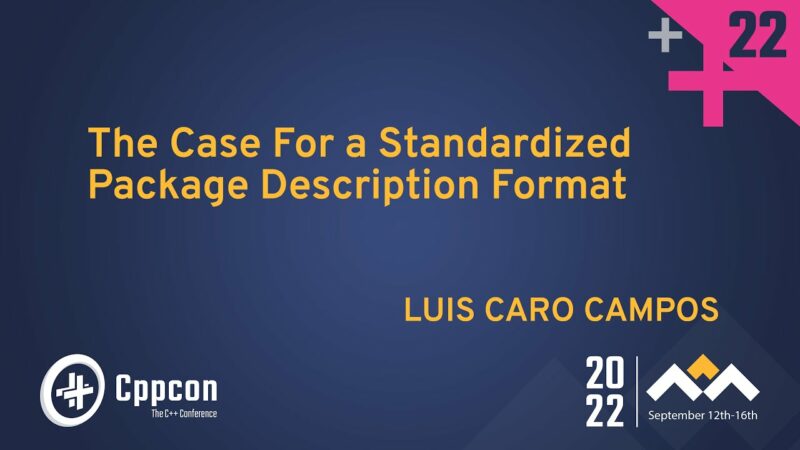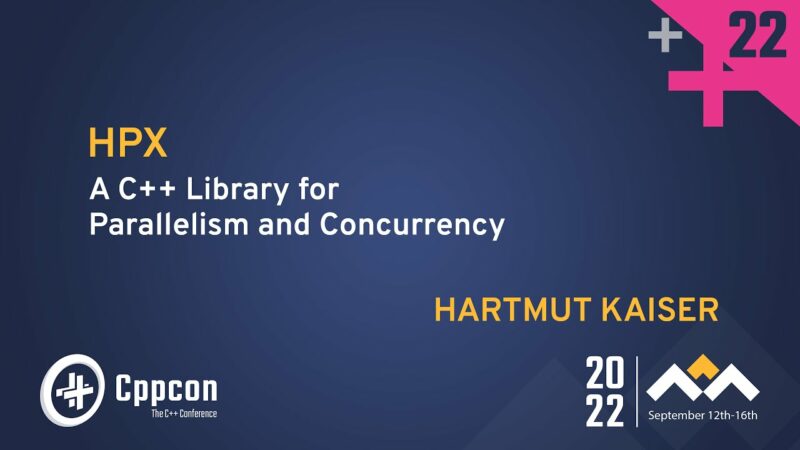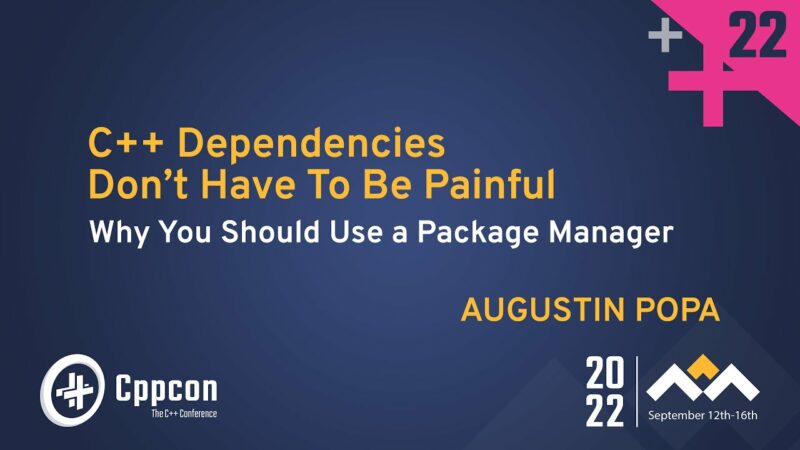https://cppcon.digital-medium.co.uk/tag/cppcon/">cppcon.org/
---
The Case For a Standardized Package Description Format for External C++ Libraries - Luis Caro Campos - CppCon 2022
https://github.com/CppCon/CppCon2022
According to the most recent ISO C++ Developer Survey, the most common mechanism for consuming third-party libraries is by making the external source code part of the build, despite the recent advancements provided by package managers like Conan and vcpkg.
On the other hand, the same survey reflects that build times are still one of the major pain points reported by most C++ developers. So what is hindering the adoption of package managers to handle third-party dependencies to help avoid time spent compiling external code that we are less likely to be working on?
In the almost 40 years of history of C++, the proliferation of build system solutions, and the evolving conventions, have made consuming external C++ libraries incredibly challenging: there is no interoperability in the way usage requirements are propagated between libraries and build systems. Earlier attempts at providing an abstraction layer include tools such as Pkg-Config and Libtool, however they have their limitations. More recently, CMake-generated configuration files that correctly express usage requirements have become more predominant, however, they are very much tied to CMake and are difficult to consume from other build systems.
To mitigate this, package maintainers for public binary repositories have had to turn to an intricate set of patches on top of third party source build scripts in order to achieve interoperability. Is there a world where we can further isolate the implementation details of build systems and the way to consume libraries? What role do new language features such as C++ modules play in this landscape? Some of these conventions even affect package managers for other languages that provide bindings to C/C++ libraries, such as Python.
This talk provides an overview of how the evolving conventions of the past 40 years are still having an impact on our ability to consume externally-provided C++ libraries, and opens a discussion on what properties a package definition format would have to satisfy in order to achieve isolation between build systems and package managers.
---
Luis Caro Campos
Luis is a Electronics and Computer Engineer based in the UK, with previous experience as a C++ engineer in the field of Computer Vision and Robotics. Currently, he is concerned with the problem of enabling Software Development at scale: focused on the tooling and processes to support large teams of engineers in writing code. He is currently part of the Conan team at JFrog, focused on the problems of the C++ community at large.
---
Videos Filmed & Edited by Bash Films: http://www.BashFilms.com
YouTube Channel Managed by Digital Medium Ltd https://events.digital-medium.co.uk
#cppcon.digital-medium.co.uk/tag/cppcon/">cppcon #cppcon.digital-medium.co.uk/tag/programming/">programming #cpp




